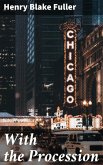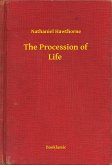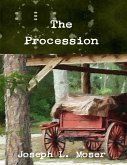In Henry Blake Fuller's novel 'With the Procession,' the reader is transported to the bustling city of Chicago during the Gilded Age. The book delves into themes of social class, urbanization, and the struggles of adapting to a rapidly changing society. Fuller's literary style is characterized by vivid descriptions of the cityscape and nuanced character development, making the reader feel like they are walking alongside the protagonist through the streets of Chicago. Set against the backdrop of industrialization and the rise of capitalism, 'With the Procession' offers a compelling insight into the complexities of city life in the late 19th century. Henry Blake Fuller, a prominent American novelist and critic, drew inspiration from his own experiences living in Chicago to write 'With the Procession.' His keen observations of society and his deep understanding of human nature shine through in this thought-provoking novel. Fuller's unique perspective as a writer adds layers of depth to the narrative, making it a must-read for fans of American literature and historical fiction. I highly recommend 'With the Procession' to readers who enjoy immersive historical fiction that explores the intricacies of urban life. Fuller's expert storytelling and insightful commentary on society make this novel a captivating and enriching read.
Dieser Download kann aus rechtlichen Gründen nur mit Rechnungsadresse in A, B, BG, CY, CZ, D, DK, EW, E, FIN, F, GR, H, IRL, I, LT, L, LR, M, NL, PL, P, R, S, SLO, SK ausgeliefert werden.









